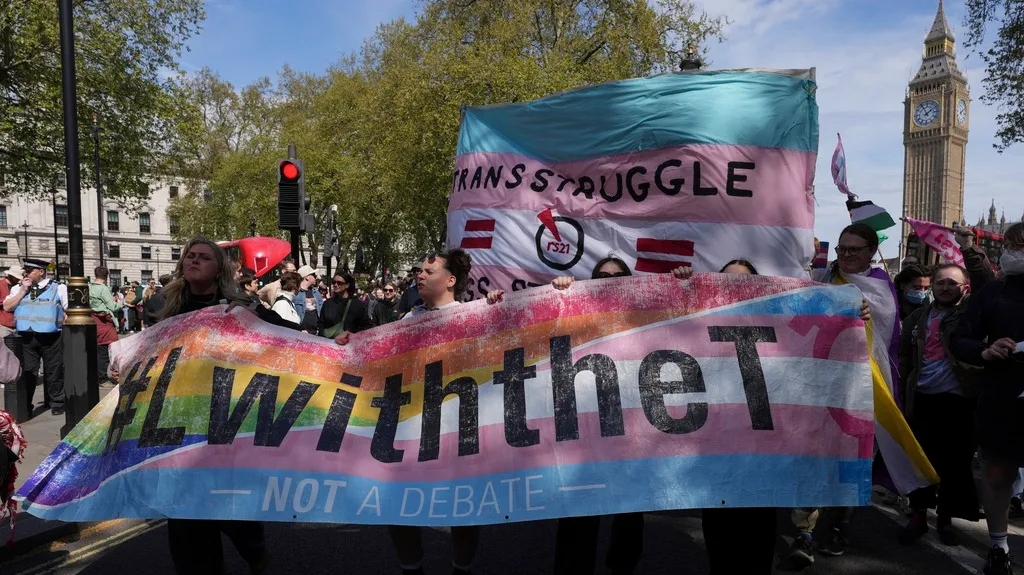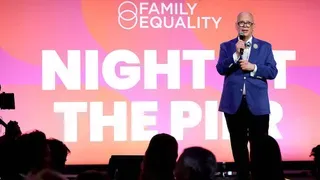February 11, 2011
Shocking Ignorance Characterizes Some Lawmakers' Views on Gays
Kilian Melloy READ TIME: 5 MIN.
In a healthy democracy, room for debate is part and parcel of public discourse. Such debate might include strong language, rhetorical flourish, and even the personal views of its participants, such as religious faith or an individual's sense of aesthetics. But debate is only useful to the extent that it is relevant and informed.
When it comes to gays and lesbians, America's lawmakers routinely demonstrate a profound and even shocking lack of factual knowledge. In some cases, the anti-gay claims put forward by the people in charge of formulating the nation's laws rely on stereotype and myth; in others, the opinions of lawmakers seem to have been formed according to shallow conceptions of the people whose lives are targeted by discriminatory laws.
Legislators such as Sally Kern, a Republican state representative from Oklahoma, or Chris Buttars, the notoriously anti-gay former Utah state senator, make headlines with sweeping--albeit erroneous--claims that gays will be the downfall of America because, they assert, gays destroyed ancient civilizations.
Such claims are widespread among the anti-gay right. Which civilizations, exactly, supposedly fell due to the gays was left vague by Kern and Buttars, but if they meant the Greeks, a more historically accurate view is that the Romans precipitated the downfall of ancient Greece by conquering the various city-states we now often mistakenly view as a single, unified Greek nation. If they are referring to the Romans--the ancient civilization most frequently likened to modern America--the more scholarly theory is that a host of other problems, mostly economic but also including the rise of the early Christian church, had far more to do with Rome's decline than did homosexuals. (Edward Gibbon, for one, subscribed in his monumental work History of the Decline and Fall of the Roman Empire to the view that the early church contributed to the ancient Empire's destruction.)
Others, whether through rhetorical strategy or because they cannot conceive of gays as fully rounded human beings with deep and meaningful personal relationships, reduce same-sex male unions to a single sexual act. (The fact that many heterosexuals indulge in the same conduct is routinely glossed over.) New Hampshire State Rep. Nancy Elliott infamously described male-male relationships as little more than a matter of anal sex--which Elliott characterized as "taking the penis of one man and putting it into the rectum of another man and wiggling it around in excrement" during debate on a bill that would have rescinded marriage rights for gay and lesbian families in that state. (The bill failed, but a fresh push to yank existing marriage rights from same-sex families is now afoot in that state.)
Then there are those lawmakers who base their perspectives on gays in pseudo-science and wild rumor. Iowa Republican State Rep. Dwayne Alons recently told Think Progress in an interview published on Feb. 9 that gays had "brought a lot of problems to society." Alons pointed to statistics that suggest that gay men live significantly shorter lives.
The problem, as the Iowa Independent noted in a Feb. 9 article, is that "The claim that being a homosexual reduces an individual's life span has been widely discredited." The so-called studies purporting to show that gay men generally die younger "have been overwhelmingly rejected," an earlier Iowa Independent article reported, "and as critics have repeatedly pointed out, the methods used were extremely flawed. They relied on obituaries published in gay newspapers over a 12-month period and compared them to obituaries from general circulation newspapers.
"Many of the group's studies were originally published in the journal Psychological Reports, which unlike many scientific journals, charges a fee to authors for publication and does not reject an article on the basis of a negative peer review," the newspaper article continued. Despite the plainly fictitious nature of those statistics, anti-gay groups cite them continually in arguing against social and legal equality for gays and their families.
Moreover, the Independent added, ignorance based on the assumption that gays are diseased leads to less incentives for gays to ensure and maintain their own health: "studies showing gay men with higher rates of STDs, including those done by the U.S. Centers for Disease Control and Prevention, also point out that factors such as homophobia and stigma can prevent gay men from seeking prevention, testing, and treatment services," the article noted.
But the problem with such a statement from a state lawmaker is not limited to the statement's basis in error; the greater liability such views pose is that lawmakers are the individuals entrusted with forging the legal framework of states and of the nation as a whole. In the case of Iowa, gay and lesbian families are facing the very real possibility that anti-gay lawmakers, supported by organizations that work to deny GLBT Americans equality, will eventually succeed in putting their rights up to a vote in the form of a proposed constitutional amendment that would not only strike marriage for same-sex couples, but also deny them any other form of legal recognition, such as civil unions or even domestic partnerships. Alons is a sponsor of the bill that would put the rights of gay and lesbian families in Iowa up to a popular vote.
Moreover, in the fiercely anti-gay climate promoted by some of Iowa's activists and politicians, the ground is fertile in that state for other discriminatory legislative actions, such as a bill that proposed legalizing discrimination against married couples by churches, religious groups, and small businesses--even secular businesses--if service providers and vendors personally disliked the marriage for religious reasons.
The bill was shot down--by a senior Republican official--but its broad language would have opened a host of potential ramifications for gays and straights alike. Landlords could have thrown gay tenants into the street; hotels could have turned away mixed-race couples; and churches, wedding planners, caterers, and other businesses could have shunned couples of mixed faith. Even couples in which one spouse had divorced an earlier husband or wife could have been targets for legalized discrimination.
Montana lawmaker Janna Taylor told her colleagues in the state House of Representatives on Feb. 8 that HIV+ prison inmates could spread the virus to guards and other corrections and law enforcement personnel simply by making blowguns and shooting blood-smeared spitballs at them. Taylor was arguing for the retention of the death penalty in the state.
"HIV is a very fragile virus that dies within seconds outside the body," noted a Feb. 8 posting at the blog From Eternity to Here. "It is only spread by blood, semen, vaginal fluid and breast milk--and there has to be enough virus to enter the bloodstream--it cannot penetrate healthy skin."
But such wild misconceptions about the virulence of the virus are widespread enough that in a number of states HIV+ persons are essentially criminalized for their status; in some jurisdictions, HIV+ people have been criminally prosecuted for charges such as assault with a deadly weapon simply for allegedly spitting at someone.
Spillover effects from anti-gay myths, propaganda, and laws that impact the general population are not only the province of poorly informed decisions made at the top. Gays and straights alike are affected at the street level by similar patterns of ignorance and prejudice, as when assailants mistake straight victims for gays and beat or kill them.
Kilian Melloy serves as EDGE Media Network's Associate Arts Editor and Staff Contributor. His professional memberships include the National Lesbian & Gay Journalists Association, the Boston Online Film Critics Association, The Gay and Lesbian Entertainment Critics Association, and the Boston Theater Critics Association's Elliot Norton Awards Committee.







